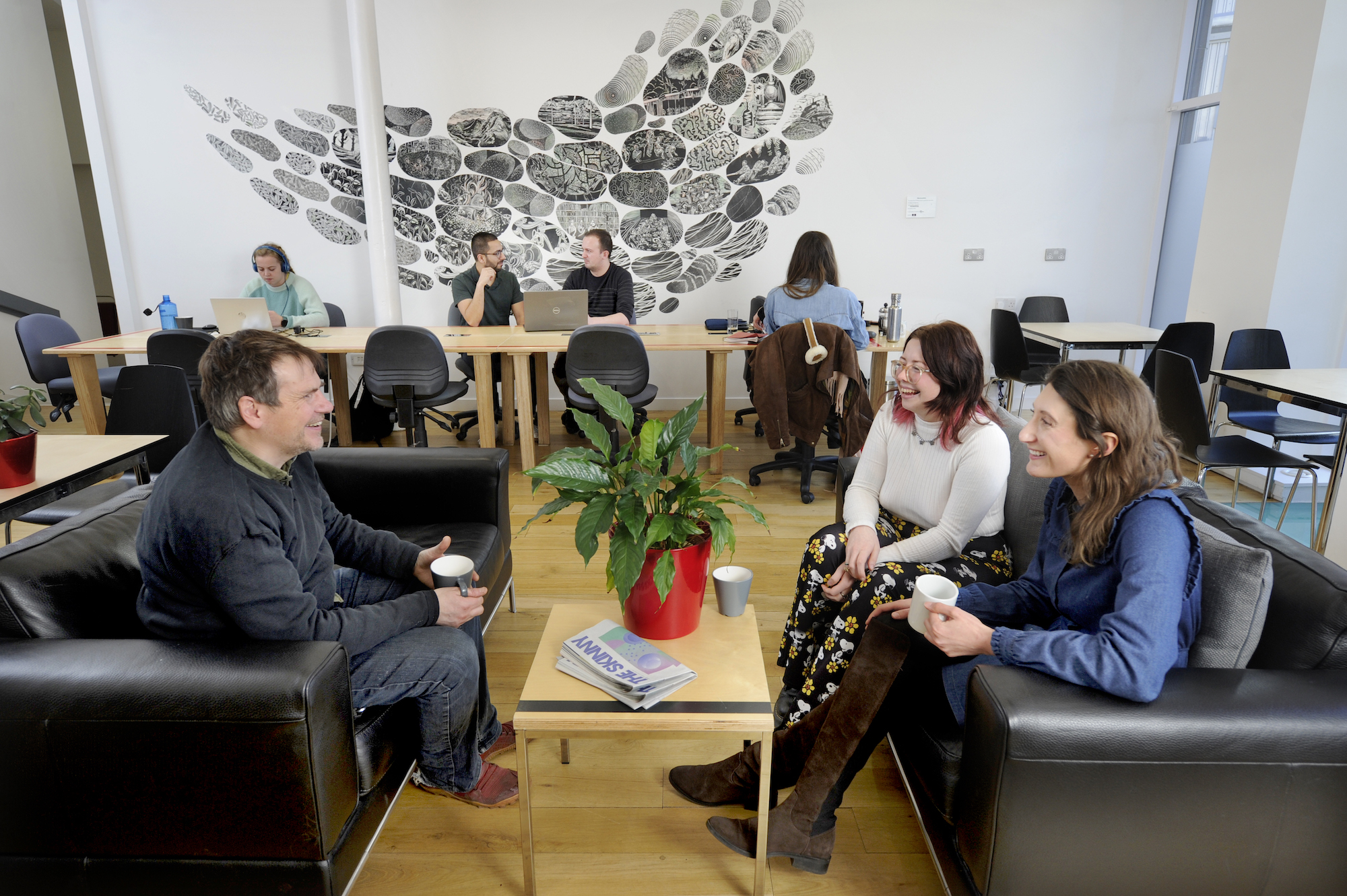Scotland’s growing coworking hubs could boost local economies by millions

The Melting Pot
A growing network of coworking hubs in Scotland has the potential to inject millions of pounds into local economies, according to research from The Melting Pot, an Edinburgh-based coworking complex.
Coworkers in Europe are estimated to spend around £9 per day at local businesses while using coworking spaces. Research shared as part of European Coworking Day (10 May) shows the base from which hubs are beginning to extend their reach throughout the country.
It highlights how even the smallest of communities can encourage collaboration — unlocking innovation and investment — by creating coworking spaces, where all kinds of people come together to work in a shared space.
With the pandemic shifting work habits, local coworking hubs have become more popular as people seek a balance between remote work and a sense of community. The Melting Pot identified over 30 such hubs across Scotland, with many of them operating as not-for-profit organisations. The development of coworking spaces could contribute to community regeneration, climate goals, and job creation.
And Scotland’s Towns Partnership (STP), the collective which champions the nation’s towns and places, is sure that growth will trigger investment, while also helping respond to the climate emergency and the cost of living crisis.
Claire Carpenter, founder and executive director of social innovation at The Melting Pot, has been speaking with the people behind coworking hubs across the country to learn more about the opportunities and challenges they face.
She said: “Coworking hubs in their own community provide the best of both worlds— somewhere close to home where they can work, but enjoy the huge benefits of being part of a workplace community. The demand for spaces is rising. They could be created in currently empty buildings in the centre of communities.
“For the places these are located, the ripple effects can be great. Not only do the hubs themselves take space in a town — or even a village— but we know that people who visit them spend with other local businesses. And we need that footfall in our town centres. A growing coworking network does exactly that.
“Spending alone has the potential to be worth millions of pounds across the country. Yet that really is just the beginning because you cannot put a price on the worth of the ideas and investment that being around others can unlock.”
Of those who responded to The Melting Pot’s recent research, there was a near 50:50 split between those describing their operation as surviving and thriving.
Ms Carpenter added: “We know that people thrive when they’re in communities - whether that be work, social or geographical.
“We want people to come and do business in our towns, villages and cities. A good coworking hub does that. It provides community cohesion, a professional resource base and helps people stay local. It’s a practical resource base for all types of entrepreneurs and individuals.
“Establishing coworking hubs isn’t without its financial challenges though. They’re complex and in smaller towns and rural areas, are often not-for-profit. It’s important they learn from each other. Realising their potential is going to require the voluntary, public and private sectors working together.”
STP agrees that the growth of coworking hubs holds huge promise.
Interim chief officer Kimberley Guthrie said: “Coworking offers so much potential - for people and places. It opens wider opportunities for those involved to collaborate with and support other local businesses of all kinds, creating powerful regional ecosystems and economies.
“Reduced travel helps the journey towards net zero and cuts costs, easing cost of living pressures - not to mention protecting local jobs and creating another use for town centre buildings, keeping communities busy, vibrant and successful.
“It’s all about positive place-making. We’d encourage people across Scotland to see how creating coworking space might work in their community. There’s great peer support available.”







